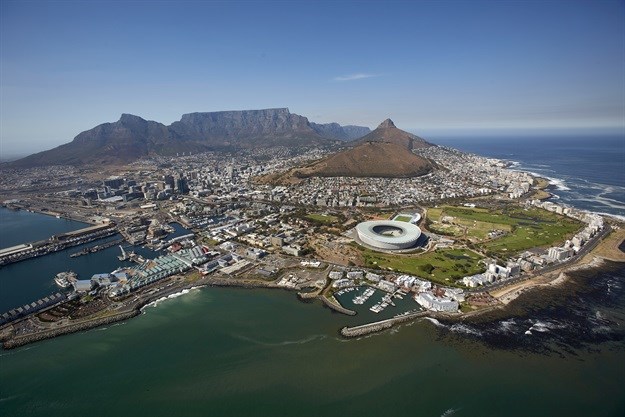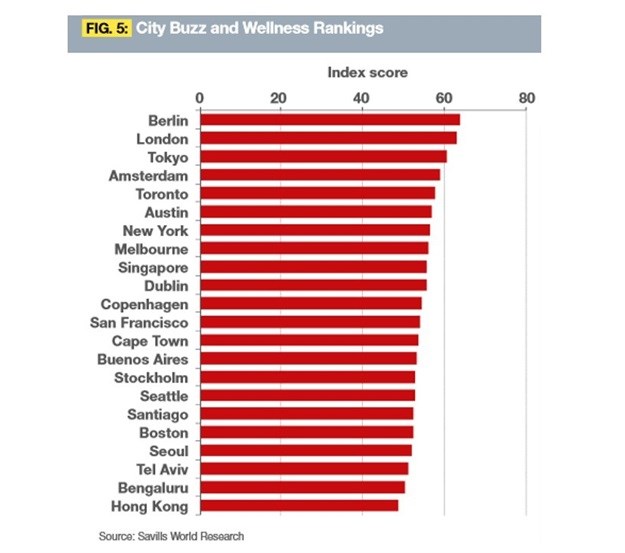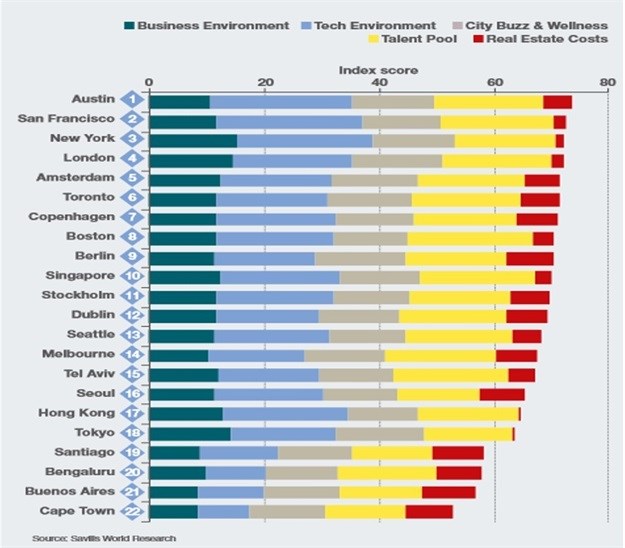
Top stories

Energy & Mining#MiningIndaba: How GenAI is reinventing mine maintenance in South Africa
Maroefah Smith 2 hours





More news












The report explains the many, diverse factors that make places a good location for the tech sector, and identifies the 22 global centres at the forefront of tech, all of which have thriving and growing tech industries, home-grown startups and incubators, and which are at the top of global shopping lists for tech companies looking for space in which to locate.
Says Dr Andrew Golding, CE of the Pam Golding Property group, which is in association with Savills: “Cape Town is internationally acclaimed for a host of factors, not only its natural beauty and lifestyle, but also its world-class services and as a vibrant urban environment. According to the City of Cape Town’s Economic Performance Indicators Report, Cape Town is widely considered as a tech and e-commerce hub within South Africa and therefore an appealing destination from which to run an e-commerce business.
“There is also an ongoing focus on hi-tech advancements with a high-speed internet programme currently being rolled out in the Western Province. Add to this Cape Town’s numerous accolades as a top global city and it’s easy to see why it is popular as a prime tourist and conference destination as well as an increasingly sought after location for corporate headquarters.”
Among other factors, the cities highlighted in the report were assessed for factors such as ‘buzz and wellness’ which includes health of the urban environment, quality of parks, crime rates, healthcare, pay equality and commuting times, while ‘city buzz’ considers nightlife, entertainment and cultural offer. Notably, Cape Town features ninth on the Savills ‘buzz and wellness’ index and second on the cost of living rank (excluding property costs).

The final component of the report took into account property costs such as the cost of renting commercial property for a ‘scale-up’ and established tech company, and the cost of renting residential property for employees.
Adds Dr Golding: “Cape Town is world-renowned as a top value proposition for property investment – both residential and commercial. Over the past decade and particularly in recent years, Cape Town’s central city has attracted huge investment in regard to residential, mixed-use and commercial property investments and successfully evolved into a leading and trendy ‘live, work, play’ destination.”
Top-rated in the Savills report was the USA’s Austin as the world’s foremost ‘tech city’, offering the infrastructure, business environment, talent pool and lifestyle to make it a strong base for tech companies.
Two other United States cities – San Francisco and New York – were ranked second and third respectively, followed by London in fourth position. Access to venture capital and talent give US cities a lead over other global centres, says Savills, but Austin beats San Francisco to the top of the table because it has lower real estate costs and is so successful in attracting tech talent.
However, while US cities dominate the top of the rankings, the rest of the top 10 consists largely of ‘liveable’ cities such as Amsterdam, Copenhagen and Toronto, which appear above traditional established global tech rivals such as Hong Kong and Singapore. This is due to the strong performance of these cities in terms of ‘buzz and wellness’ says Savills, with the firm noting these as factors that are likely to prove increasingly important to the tech industry in attracting future talent.
On this basis, Berlin, London and Tokyo are the highest ranking. Berlin is the only city which appears in the top five cities for all three metrics (‘buzz’, ‘wellness’ and cost of living) and ranks first. London and Tokyo, despite having lower wellness scores, are global metropolises and therefore are boosted by their ‘buzz’.

Amsterdam is ranked fourth and Toronto fifth, after scoring highly in both ‘wellness’ and ‘buzz’ while remaining affordable locations to live. Copenhagen is ranked 11th in the index due to its high living costs, but is notable for being the world’s foremost tech city in terms of ‘wellness’ and is therefore one to watch, says Savills. The real estate advisor notes that given the increased focus on wellbeing among the latest generation of workers, this could come to dominate their decision-making. Cities that deliver healthier environments are therefore likely to consolidate their positions as destinations for tech talent and occupiers.
Nicky Wightman, director, Savills Worldwide Occupier Services, says: “Cities attract young tech talent who increasingly want to live in dynamic, healthy neighbourhoods within walking or cycling distance of the office. For the first time we’ve therefore looked to specifically identify the cities that deliver what this demographic desires. While there’s often a trade-off between ‘buzz’ and ‘wellness’, Amsterdam and Toronto balance the two. Copenhagen, meanwhile, may not currently offer the breadth of nightlife and entertainment as larger cities, but with the next generation of talent increasingly making decisions based on the potential impact on their physical and mental wellbeing, it may well see its global appeal grow. Occupiers looking to attract such talent therefore need to pay close attention to such factors when looking for new locations.”
Accommodation costs (the cost of renting residential and office space per employee, per annum) stand at $39,700 in Amsterdam, $35,800 in Toronto, and $33,500 in Copenhagen – half that of London, New York or San Francisco, where the same costs exceed $65,000 per year.
Paul Tostevin, associate director, Savills World Research, adds: “Smaller cities tend to fare well as ‘healthy’ cities, whilst crowded megalopolises such as London, New York and Tokyo offer a rich variety of retail, nightlife and cultural experiences which will always be attractive to some workers. But in the middle there are cities such as Amsterdam, Toronto and Berlin which score well on both. These cities tend to mean shorter commutes, easier access to amenities and a better work/life balance, and we suspect they may move up the rankings as they drive the economy in a digital age.”